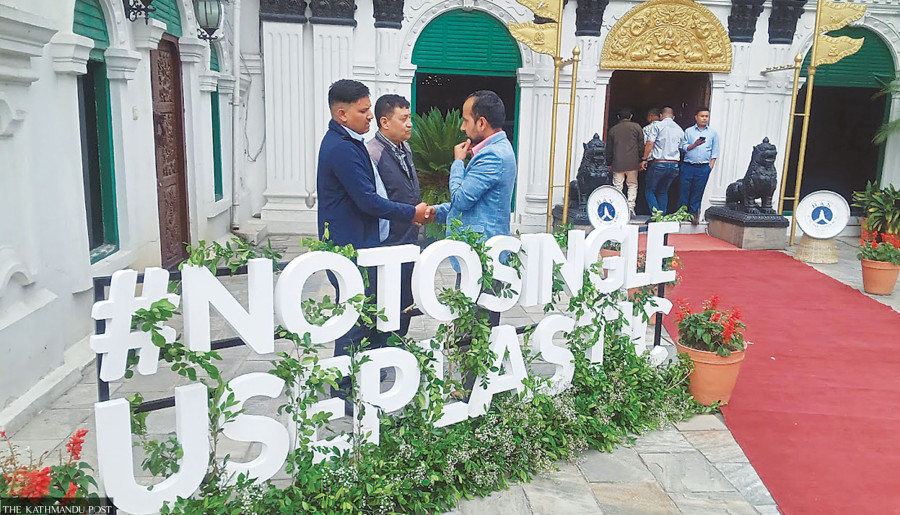Editorial
Saying goodbye to plastics
Recognising the pollution caused by plastics, the hotel industry has promised to ban them.
The commitment made by Hotel Association Nepal (HAN) to end the use of throwaway plastics among its constituent members across the country is a significant step towards minimising the effects of climate change. Recognising the pollution caused by single-use plastics, HAN promised to eliminate all types of such materials, including water bottles, drinking straws, cutlery, plates, drink stirrers, expanded polystyrene food service products, toothbrushes and combs from across 3,000 hotels. That a single plastic bag takes almost 500 years to completely biodegrade speaks volumes about the long-term effects of plastic pollution. The commitment by the umbrella organisation of Nepali hotels is an example of service-oriented private institutions waking up to the impending climate change doom before us.
Commitments, though, have to be followed by action; the elimination of the use of disposable plastics does not happen overnight on January 1, 2025, the deadline fixed by HAN. Member hotels should, therefore, start working towards that goal right away for the commitment to become meaningful. In fact, there is no harm if they could reach their goal earlier, for we are already running against time. Research reports on climate change have lately been unequivocal in stating that the deadly effects that were predicted to come around the turn of the century will come much earlier. In fact, recent reports have said that the ongoing exploitation of nature is taking us closer to a point of no return pretty soon.
It is also pretty established by now that the effects of climate change are far greater in the Himalaya than in other parts of the world. This makes the question of the climate crisis all the more important for countries like Nepal that have precious little resources to fight the effects. As per an Asian Development Bank report, plastics constitute 12 percent of the total pollution in Nepal. With tourism and commodity culture climbing up the mountains of Nepal, the once idyllic villages of rural Nepal are now increasingly being littered with plastic waste. The once pristine rivers and rivulets of the countryside, not to mention those in urban areas, are now increasingly becoming filled with plastic bottles and polythene bags, among others, even as we continue to discard indigenous ways of consumption that were often in line with sustainable nature.
It goes without saying that we, humans, have brought the doom onto ourselves simply because we cannot let go of the greed to put ourselves at the centre of the universe. We are bearing the brunt of a carbon-intensive economy as we continue to become obsessed with capital accumulation without thinking about the consequences. It becomes imperative, then, that we recognise the need to let go of our greed and obsessions and find ways to keep the possibility of a sustainable future. It is not enough for political leaders and administrators to visit climate conferences across the globe every year, and make grand promises about mitigating the effects without making any genuine efforts at home. The government should bring all stakeholders together in thinking of a common goal for fighting climate change, even if it means putting our economic interests on the back burner.




 11.12°C Kathmandu
11.12°C Kathmandu













